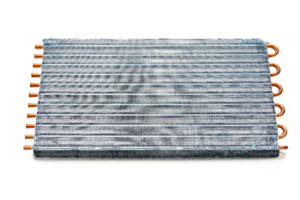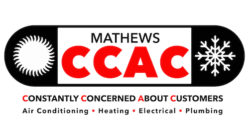
Why Coil Corrosion Occurs
Outdoor coil corrosion is mainly caused by the compound sodium chloride, which is the salt that’s present in our coastal air. Salt-laden air can have a corrosive effect on your indoor evaporator too, but its coil is also vulnerable to the effects of airborne volatile organic compounds (VOCs). When VOCs like formaldehyde off-gas from building materials, pressed wood in furniture, textiles and various everyday household products, they oxidize into corrosive formic or acetic acid on your indoor HVAC coil.
Signs of a Corroded Coil
Declining HVAC equipment efficiency and a reduction in cool air output are likely the first symptoms you’ll experience when the coils become corroded. In practical terms, your energy bills will start to increase, and you’ll find it harder to stay comfortable. This happens because tiny holes are forming in the corroded coils and the refrigerant is slowly leaking out.
Effective Ways to Prevent Corrosion
If your HVAC pro discovers that the coils are corroded and leaking refrigerant, you’ll likely face a costly equipment replacement. You can avoid this inconvenience and expense by taking proactive measures to prevent coil corrosion:
- Keep up with routine preventive maintenance, and make sure your HVAC pro cleans the coils with a product that neutralizes accumulated acid.
- Have a whole-house air cleaner added to your HVAC system that can eliminate VOCs. As a bonus, you’ll boost your indoor air quality.
- Rinse off your outdoor condenser coil with plain water once a month to help wash away salt buildup.
- Ask your HVAC pro about having an anti-corrosive coating applied to the coils and fins to extend the life of your equipment.
For personalized solutions for preventing HVAC coil corrosion, contact the Coastal Bend home comfort pros at CCAC today.
Our goal is to help educate our customers in Corpus Christi, Texas about energy and home comfort issues (specific to HVAC systems). For more information about your HVAC system, download our free Home Comfort Guide or call us at 361-678-2495.












